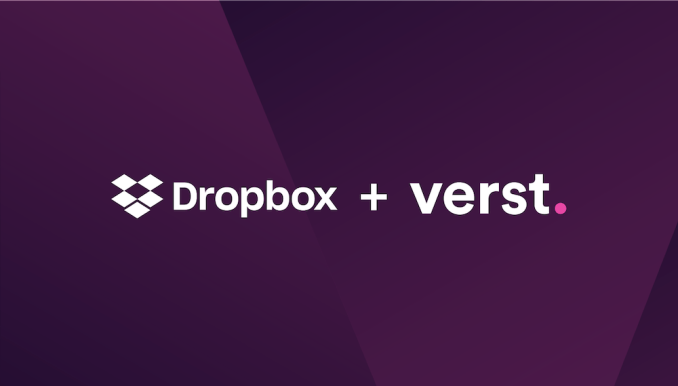
Small businesses make up nearly all of the U.S. exporting market. And international consumer markets like China’s growing middle class offer plenty of opportunities for even more small businesses to get in on the exporting game.
Small Business Export Ideas
If you’re interested in starting a business that exports products to other markets around the world, check out these 50 small business export ideas.
Vehicle Exports
The auto industry in the U.S. makes it a great area to focus an exporting business. You can work with manufacturers or even export used vehicles.
Auto Parts Exports
You could also focus your efforts on smaller products within the automotive niche like parts and tools.
Computer Exports
Computers and similar tech are also popular in markets around the world. So you could start an exporting business that focuses on computer parts and similar hardware.
Smartphone Exports
Or you could focus on smartphones and used mobile technology products.
Tech Accessory Exports
There’s also a huge assortment of tech accessories for smartphones and computers that you could export from the U.S.
Clothing Exports
There isn’t a ton of clothing manufacturing in the U.S. compared to some other countries. But you can still create a business that exports clothing from certain U.S. designers or even independent artisans.
Beauty Product Exports
You can also start a business that exports beauty products like cosmetics, hair care and skin care items.
Cotton Exports
Cotton is a popular export for U.S. businesses. You can ship the raw material to manufacturers in other countries that make clothing and textiles.
Art Exports
You could also start a business that focuses on exporting art to collectors around the world.
Collectible Exports
There are also a number of other niches that are popular with collectors around the world. So you could start a business with a very specific collectible product line that you ship out to those collectors.
Leather Goods Exports
Leather goods are also popular in markets around the world, making for great opportunities for exports.
Timber Exports
You can also start a business that exports raw wood material to companies that manufacture furniture and similar products.
Paper Exports
Or you could process that material further and then ship out raw paper materials to businesses that use it in various manufacturing processes.
Home Goods Exports
For those who want to ship products to actual consumers or retailers that sell to consumers, you could sell home decor or housewares.
Produce Exports
Farming or agriculture businesses can grow by exporting produce to various markets overseas.
Meat Exports
Beef and other meat products from U.S. farmers are also popular in markets around the world like China.
Seafood Exports
If you have a fishing business, you can also export those products to markets around the world that don’t have access to the same types of seafood.
Rice Exports
The U.S. recently struck a deal to export rice products to China. So this is another viable opportunity for U.S. food businesses.
Livestock Exports
For businesses that have the logistical ability to transport animals, you can export livestock to other countries in North America.
Animal Feed Exports
Animal feed is another potential area for farming and food businesses to consider.
Packaged Food and Beverage Exports
You can also actually package and brand food products and then sell them directly to consumers or retail outlets in other countries.
Pharmaceutical Exports
Though there are plenty of hoops to jump through when exporting pharmaceuticals, you can work with drug companies to arrange the export of various pharmaceuticals to medical suppliers in other countries.
Metal Exports
Various metals can also be popular for manufacturers and other types of businesses around the world.
Gem Exports
Or you could focus on a smaller niche and export gems to jewelers and similar businesses in other countries.
Machinery Exports
Machinery and factory equipment is another popular category for U.S. exporters.
Transportation Equipment Exports
You can also focus on equipment for transportation companies like aviation parts or equipment for railway systems.
Chemical Exports
Organic chemicals can also be popular with a variety of different organizations around the world.
Medical Equipment Exports
Or you could focus on providing medical equipment to facilities in other countries.
Electrical Equipment Exports
You can also build a business that exports electrical equipment to builders and businesses.
Coal Exports
Coal is still used by a lot of outlets as a power source. So you can potentially export the material to those outlets.
Plastic Exports
You can also export raw plastic material to manufacturers that use the material in various products.
Environmental Technology Exports
Or you can provide products or even services for companies that want equipment and expertise to improve their environmental initiatives.
Handmade Product Exports
Handmade products have become increasingly popular in markets around the world. So you can export your own handmade products or even arrange exports for other handmade businesses.
Used Product Exports
You can also focus on selling a variety of different used or secondhand products to consumers in other countries.
Software Service Exports
If you have the ability to create software or cloud based services, you can focus on selling those products or services to users in other countries.
Financial Service Exports
It’s also possible to build a business around financial services that focuses on markets outside of the U.S.
Business Service Exports
Or you could provide services to other businesses and focus on working with companies in other countries.
Information Service Exports
Information service, like IT expertise or consulting, can also provide great business opportunities. And you can easily work with clients in outside the U.S. either by traveling or communicating mainly online.
Training Exports
You could also build a business centered around training for workers and companies in other countries.
Entertainment Exports
Since U.S. entertainment like music and movies tend to be popular in other countries as well, you can build an export business that brings those items to international consumers.
Construction Exports
You can also start a construction business that provides services in international markets.
Engineering Exports
Similarly, you can start an engineering business where you work with companies and organizations around the world.
Running an Export Warehouse
You might also consider starting a warehouse business where you store and arrange for the export of various products for other businesses.
Dropshipping Service
Or you could create a more all-encompassing service for ecommerce businesses by working as a dropshipping provider that covers all of the shipping and logistics for ecommerce businesses.
Export Brokerage
You could also start a business where you serve as a trade agent to help other small businesses manage their exports.
Customs Brokerage
Or you could focus more specifically on helping exporters with issues related to getting items through customs.
Export Consultant
It’s also possible to create a consultancy business that helps other businesses looking to break into the business of exporting.
Running an Export Directory
You could also start a business that lists various exporters in a directory format to help importers looking for specific products or services.
Export Marketing Service
For experienced marketers, you could start a marketing company that helps exporters market their products to their target customers outside the U.S.
Export Insurance Service
There are also a lot of insurance considerations for businesses that export. So you could start an agency that helps those businesses get the insurance they need to protect their assets.
Photo via Shutterstock
This article, "50 Small Business Export Ideas" was first published on Small Business Trends




 The team behind Verst is joining Dropbox, in an acquisition that marks the end of the Verst publishing platform. The startup actually started life as DWNLD, a platform that transformed websites into mobile apps. It raised a $12 million Series A led by Grelock Partners before shifting focus to Verst, which launched earlier this year as a blogging platform that has traffic and revenue…
The team behind Verst is joining Dropbox, in an acquisition that marks the end of the Verst publishing platform. The startup actually started life as DWNLD, a platform that transformed websites into mobile apps. It raised a $12 million Series A led by Grelock Partners before shifting focus to Verst, which launched earlier this year as a blogging platform that has traffic and revenue… 
 H20.AI started almost 6 years ago with a mission to simplify and democratize artificial intelligence. Today the company announced a $40M Series C round. Nvidia and Wells Fargo led the round with participation from New York Life, Crane Venture Partners, Nexus Venture Partners and Transamerica Ventures. Today’s investment brings the total raised so far to $75 million. The last round was…
H20.AI started almost 6 years ago with a mission to simplify and democratize artificial intelligence. Today the company announced a $40M Series C round. Nvidia and Wells Fargo led the round with participation from New York Life, Crane Venture Partners, Nexus Venture Partners and Transamerica Ventures. Today’s investment brings the total raised so far to $75 million. The last round was… 

 Amazon is soon to announce Alexa for Business, and WeWork is one of the first partners to have hopped on the platform. WeWork’s vision is to use technology to help businesses make the most out of their physical space, all while customizing that space to each individual’s personal needs. The co-working giant has been on the Alexa for Business platform for about a month now, as part…
Amazon is soon to announce Alexa for Business, and WeWork is one of the first partners to have hopped on the platform. WeWork’s vision is to use technology to help businesses make the most out of their physical space, all while customizing that space to each individual’s personal needs. The co-working giant has been on the Alexa for Business platform for about a month now, as part… 
 Video advertising company Innovid has acquired another advertising startup, Taykey. We’ve written about Taykey as a tool that companies can use to target their ads based on the topics that their desired audience is interested in. Innovid says that by combining Taykey’s analysis with its own data about video engagement, it can show advertisers how targeting relevant content affects…
Video advertising company Innovid has acquired another advertising startup, Taykey. We’ve written about Taykey as a tool that companies can use to target their ads based on the topics that their desired audience is interested in. Innovid says that by combining Taykey’s analysis with its own data about video engagement, it can show advertisers how targeting relevant content affects… 

 Fractyl Labs, a Lexington, Massachusetts-based startup developing treatments for diabetes, has raised $44 million in Series D financing from a slew of VC firms, including GV, True Ventures, the IDO Fund, General Catalyst, Bessemer Venture Partners, Domain Associates, Mithril Capital Management, Emergent Medical Partners, L.P., and Deerfield Management Company, L.P. Fractyl has been working on…
Fractyl Labs, a Lexington, Massachusetts-based startup developing treatments for diabetes, has raised $44 million in Series D financing from a slew of VC firms, including GV, True Ventures, the IDO Fund, General Catalyst, Bessemer Venture Partners, Domain Associates, Mithril Capital Management, Emergent Medical Partners, L.P., and Deerfield Management Company, L.P. Fractyl has been working on… 
 The Food and Drug Administration has just cleared AliveCor’s Kardiaband EKG reader as the first medical device accessory for the Apple Watch. Europe has been able to use a version of the Kardiaband for Apple Watch for some time now but, thanks to the new FDA approval, the device can now be used in the U.S., marking the first time an Apple Watch accessory will be able to be used as a…
The Food and Drug Administration has just cleared AliveCor’s Kardiaband EKG reader as the first medical device accessory for the Apple Watch. Europe has been able to use a version of the Kardiaband for Apple Watch for some time now but, thanks to the new FDA approval, the device can now be used in the U.S., marking the first time an Apple Watch accessory will be able to be used as a…